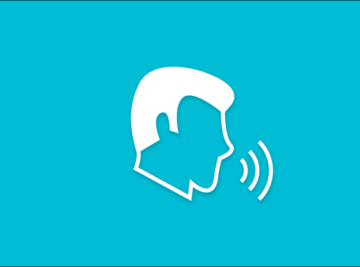The Stack is a weekly podcast where we share and discuss the latest trends, news, and content from the world of marketing, sales, and tech. In each episode, Sean, Tim, and Ryan sit down to chat about the hard-hitting questions related to sales, marketing, and tech. You can subscribe on iTunes and Soundcloud.
In this episode, we share our key takeaways from Google’s mobile-first indexing and how Google views spammy backlinks.
We would love to hear your thoughts so make sure to comment or tweet us at @Sylvestrer1, @SeanHenri, and @Tendrecroppes or @PepperlandMKTG.
Instagram May Divide Hashtags From Captions To End ‘Overhashing’
TechCrunch by Josh Constine
The whole point of stuffing an Instagram post is to attract more followers by pulling in relevant search terms. As a user, it can get annoying seeing a post stuffed with a ton of these tags but Instagram is making moves to handle this issue.
Key New Features:
- Hashtag Selector
- Geofenced Posts
- Stories highlight stickers
- Quiz Stickers
- Video Tagging
- GIF Messages now available in direct messaging
Mobile-First Indexing is Finally Here
Google Team
This week, we have seen a flood of notifications from Google. Whether you’re a marketing agency managing websites for clients or you’re the webmaster for your own company’s site, there’s a good chance you got an email from Google this week with a subject line along the lines of:
“Mobile-first indexing enabled for [YOUR SITE]”
As Google puts it in their notifications, “crawling, indexing and ranking systems have typically used the desktop version of a page’s content, which may cause issues for mobile searchers when that version is vastly different from the mobile version. Mobile-first indexing means that we’ll use the mobile version of the page for indexing and ranking, to better help our — primarily mobile — users find what they’re looking for.”
This is due to a major push from Google to prioritize mobile-friendly content in search results, especially as they see more and more searches being done on mobile. Though the initiative was announced as far back in 2016 (as you’ll see in the link), it was just recently that the change was rolled out extensively.
Google Advises About Spammy Backlinks
Roger Montti for Search Engine Journal
In a recent Google Hangout, a user asked the question:
“There are tens of thousands of backlinks to our website… I heard a lot from you… that there are websites which are… spammy websites may be penalized by Google… What should we do about those websites? Should we just ignore and act like we don’t know anything?”
Key Takeaways:
- If you have a pretty mature website, don’t worry too much about naturally acquiring spammy links.
- Google understands that you are naturally going to build up a few bad links over time.
Google Blue Shield Icon In Snippets For Some Government Sites?
Barry Schwartz for Search Engine Round Table
It appears that Google may be testing out a verification badge for search results, at least in a limited instance. The feature was noticed by Michael Postorino, a marketing manager who tweeted pictures of the search results in question (all for government websites).
As seen in the screenshots that he captured, the search results in question included a small, blue, shield-shaped icon with a checkmark inside of it. It is very similar in structure to the Twitter verification badge, and almost identical to the Google+ verification badge (except blue instead of black).
Key Takeaways:
- Google is taking steps to help users find trustworthy content
- Directly related to how authoritative your website and content is
- This will dramatically improve click-through rate
Here’s what you should take away…
Instagram is cleaning up their user’s hashtags by testing a consolidation function that hides people that are ‘overhashing’. They are also in the process of testing other things that could improve marketing efforts by rolling down geofencing like what we see on Facebook.
Mobile-first indexing is here! We have been flooded with emails lately and are starting to understand the importance of optimizing websites for mobile search. Make sure to put yourself in the searcher’s shoes and poke around your website and find the issues with navigation, touch-points, and overall experience.
Google understands that your website is bound to acquire a few spammy links over the course of its life. Each week we discuss Google news and their message stays pretty consistent; make good content. If you are putting the time in to make good content, then you don’t have to worry about getting spammy backlinks.









